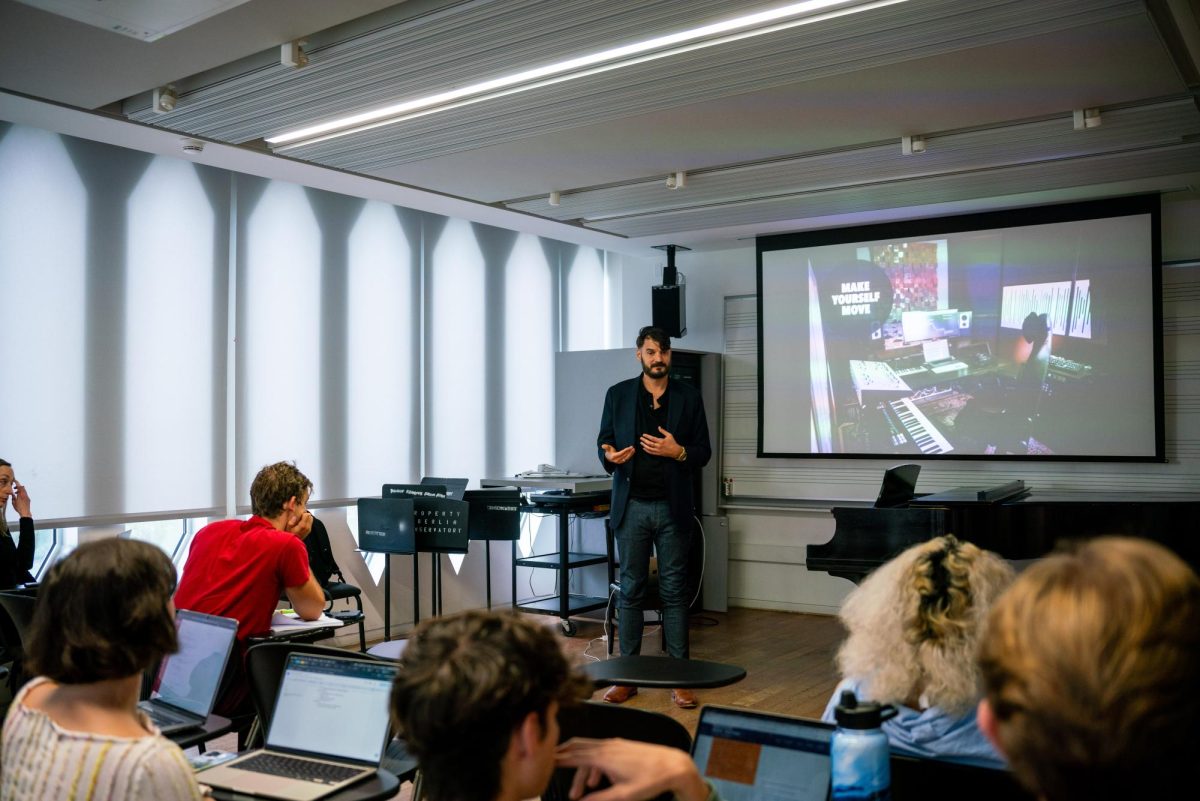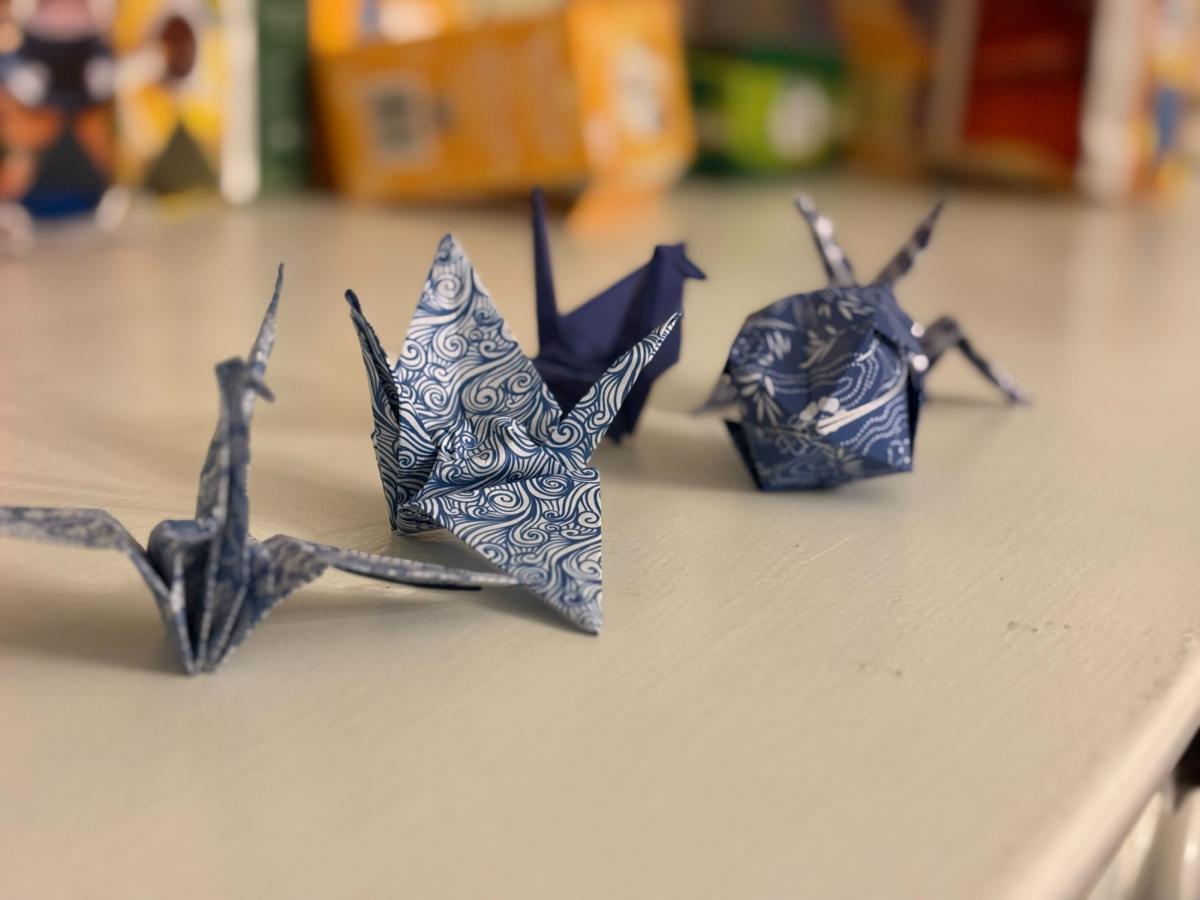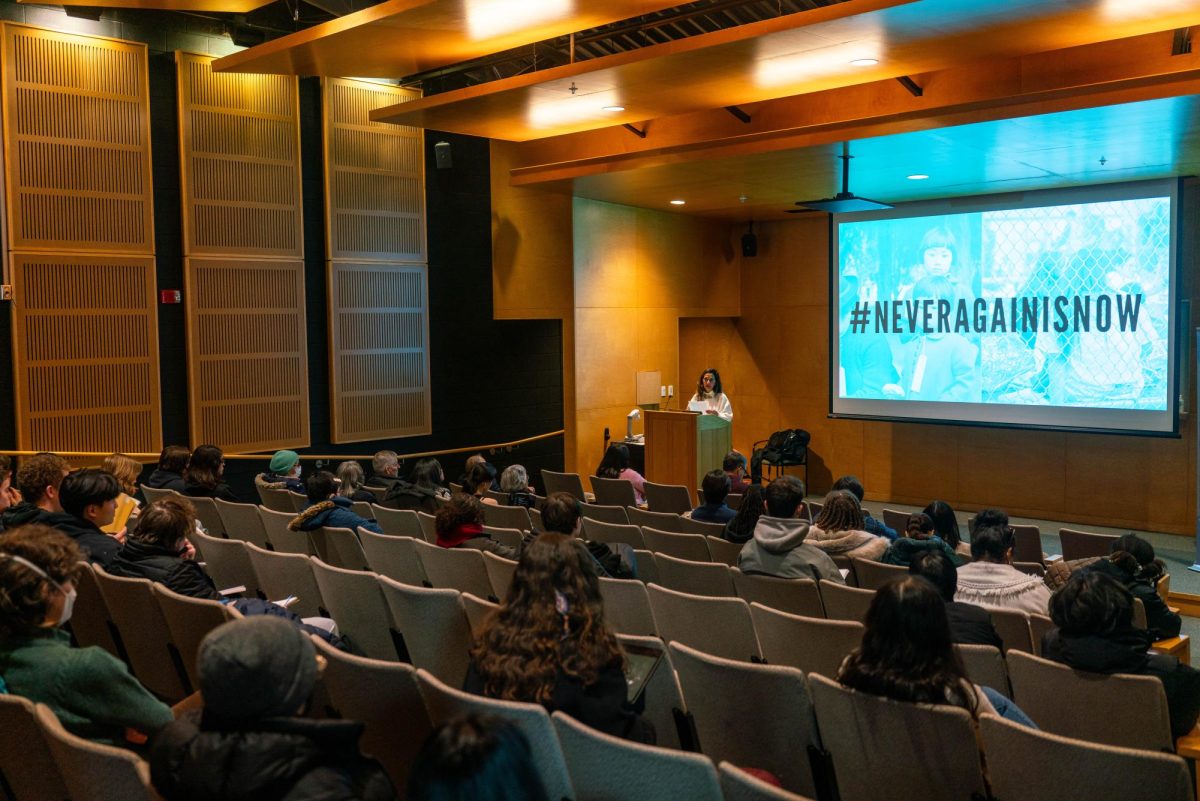Aaron Helgeson, OC ’05, received a double-degree in Composition and Theater. Deciding to further his education, he went to graduate school at the University of California, San Diego before coming back to Oberlin to teach Composition. Helgeson was named an Artist Fellow with the Boston Psychoanalytic Society and Institute in 2023 and worked with Alfred Margulies, a Harvard University professor of psychiatry.
“I’m a composer, and I’ve been doing that for as long as I can remember, and I do that professionally,” Helgeson said. “I’m teaching now at Montclair State University in New Jersey.”
On Tuesday and Wednesday, he returned to Oberlin to talk about his new three-year psychology research project about creative wellness and how to best optimize space and time.
“I started getting interested in creativity and mental health and the relationship between the two of them, partly just from my own personal experience and my obstacles with depression, but also [because] so many students were experiencing the same thing,” Helgeson said.
In one lecture, “Optimizing Creative Workspace and Habits,” he described ways that students can effectively adjust their surroundings by making intentional choices to support mental health and creativity. He started doing psychoanalytic research and published an article during the peak of the pandemic in 2021 about creative wellness.
“I published a piece in [the] online journal [I Care If You Listen] about the relationship between creativity and depression and … how they can reinforce one another,” Helgeson said. “Since then, I had an outpouring from people in response to [my research] wanting to talk about their stories [and] wanting to come into training programs like Oberlin. … I felt I needed to get serious about it at that point, so I did a lot of scholarship over the past three years.”
Helgeson’s “Optimizing Creative Workspace and Habits” lecture reviewed how things like natural light and a large space can positively affect creativity, and how making minor adjustments to daily habits can make a significant difference in mental health and creativity. He went on to describe how eliminating any distractions before bed and drinking enough water helps a creative mind.
“I felt like for creative work — visual arts, writing, composing — that psychology has a lot of [research done], but we just never deal with it,” Helgeson said. “For me, the goal is to [ask] how we can incorporate the things that we’ve learned from cognitive science, from neuroscience, from psychology, and leverage that in our training programs and in the professional world.”
Building off of his interest in psychoanalytic studies of creativity and mental health, Helgeson explored how students could make better use of their time by prioritizing mental health in order to inspire creative wellness. He went on to describe how his personal experience with depression informs his research, artistry, and connection with students.
“I think one very personal reason is [that] I just don’t want other people to go through what I went through,” Helgeson said. “I went through three depressive episodes before I really started to get a handle on these things, and I really didn’t start treatment seriously until that third episode. If I had tools to deal with all of these things earlier on in my life, I might not have been in the position that I was during that period. I’m thankful that now I have all these tools, I have a good therapist, and I have a good treatment regime for myself.”
Helgeson continues to pursue research in the field of psychology in order to find the best strategies to maintain creative wellness and mental health.
“The point is that creativity isn’t like a discipline,” Helgeson said. “It’s not just an arts thing: It’s a process. It’s like a way of being in the world.”












